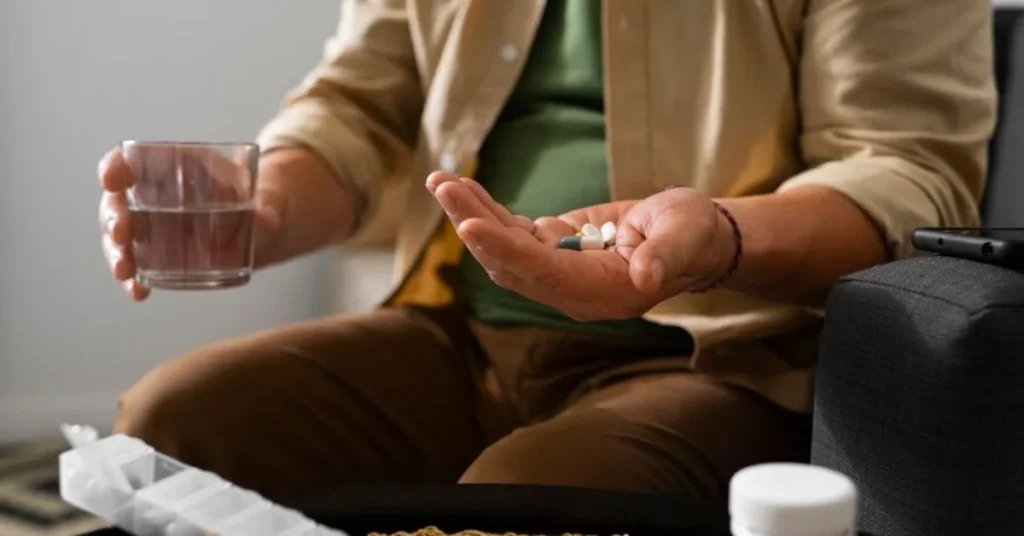Recognizing when you need addiction treatment is the first step toward recovery. Addiction can sneak up on you, gradually taking over your life without you realizing it.
1. Loss of Control
One of the clearest signs you need addiction treatment is losing control over your substance use. You might find yourself consuming more than you intended or unable to stop despite wanting to. This loss of control shows that the substance has a significant hold on you.
2. Neglecting Responsibilities
If you’re neglecting responsibilities at work, school, or home, it’s a major red flag. Addiction can make it hard to focus on everyday tasks, leading to missed deadlines, poor performance, and strained relationships.
3. Health Issues
Substance abuse can take a serious toll on your health. If you notice physical symptoms like weight loss, fatigue, or frequent illnesses, it might be due to your addiction. Mental health issues, such as anxiety or depression, are also common and can signal the need for treatment.
4. Relationship Problems
Addiction often causes tension and conflict in relationships. If you’re experiencing frequent arguments, losing friends, or feeling isolated, it’s a sign that your substance use is affecting your social life. Seeking help can improve your relationships and rebuild trust.
5. Legal Troubles
Getting into legal trouble because of your substance use is a serious sign you need addiction treatment. This might include arrests for driving under the influence, drug possession, or other offenses related to your addiction.
6. Financial Difficulties
Addiction can be expensive. If you’re spending a lot of money on substances and facing financial problems as a result, it’s time to consider treatment. Financial instability can lead to stress and exacerbate your addiction.
7. Failed Attempts to Quit
Many people try to quit or cut back on their own but find they can’t do it. If you’ve tried and failed to stop using substances, it shows that professional help is needed. Treatment programs offer the support and resources necessary for successful recovery.
8. Increased Tolerance and Dependence
If you need more of the substance to achieve the same effect or if you feel withdrawal symptoms when not using, these are signs of increased tolerance and dependence. This indicates that your body is becoming reliant on the substance, making it harder to quit without help.
Why Recognizing These Signs is Important
Understanding these signs is crucial because addiction often gets worse over time. The longer it goes untreated, the more damage it can cause to your health, relationships, and overall quality of life. Recognizing the need for treatment early can prevent further harm and set you on the path to recovery.
What to Do If You Recognize These Signs
If you identify with any of these signs, it’s important to take action. Here are some steps you can take:
1. Reach Out for Help
The first step is reaching out for help. This could be talking to a trusted friend or family member or contacting a healthcare professional. Admitting you need help is a courageous and essential move towards recovery.
2. Research Treatment Options
There are various treatment options available, including inpatient and outpatient programs, therapy, and support groups. Research these options to find the one that best fits your needs and situation.
3. Consult a Professional
A healthcare professional can help you understand your addiction and recommend the best course of treatment. They can also provide resources and support to guide you through the process.
4. Join a Support Group
Support groups, such as Alcoholics Anonymous or Narcotics Anonymous, offer a community of people who understand what you’re going through. Sharing experiences and receiving encouragement from others can be incredibly helpful.
5. Create a Plan
Develop a treatment plan that includes setting goals, establishing a routine, and identifying triggers. Having a plan helps you stay focused and motivated throughout your recovery journey.
6. Stay Committed
Recovery is a long-term process that requires commitment and effort. Stay dedicated to your treatment plan, even when it gets tough. Remember that setbacks are normal and part of the journey.
7. Practice Self-Care
Taking care of yourself is crucial during recovery. This includes eating a balanced diet, getting regular exercise, and ensuring you get enough sleep. Self-care can improve your physical and mental well-being, making it easier to stay on track.
8. Seek Ongoing Support
Even after completing a treatment program, ongoing support is important. Continue attending support groups, therapy sessions, or any other forms of support that help you maintain sobriety.






